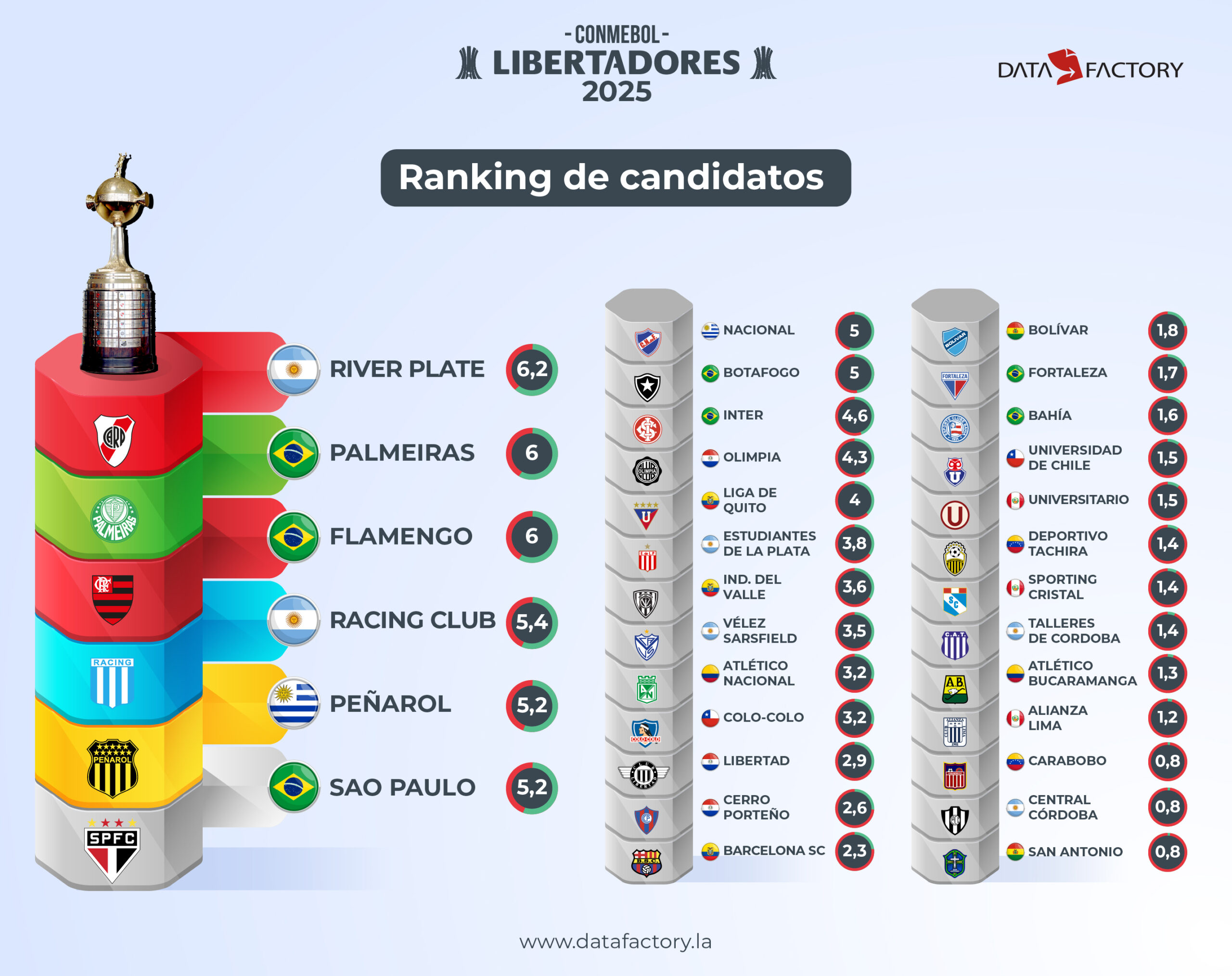The race for the 2025 Copa Libertadores is heating up, and early data suggest a three-horse sprint between Palmeiras, River Plate, and Flamengo. Palmeiras—defending champions and current Brasileirão leaders—have kept their core intact, adding 19-year-old winger Luis Guilherme, whose xG assisted per 90 already tops 0.40 in state-league fixtures. River Plate, rejuvenated under Martín Demichelis, press higher than any Argentine side (PPDA 8.2) and have seen 18-year-old Claudio Echeverri blossom into a vertical-dribble threat. Flamengo, meanwhile, hired Carlos Carvalhal to replace Jorge Sampaoli; the Portuguese coach has tightened their defensive block, cutting xGA from 1.31 to 0.87 per match since February.
Model simulation run on 10,000 seasons (using Elo, minutes-weighted squad value, travel distance, and altitude-adjusted goals) gives the following probabilities to lift the trophy:
Palmeiras 28 %
River Plate 22 %
Flamengo 17 %

Botafogo 9 %
Boca Juniors 8 %
Atlético Nacional 5 %
Peñarol 4 %
Defensa y Justicia 3 %
Field 4 %
Key factors behind Palmeiras’ edge are squad depth and the two-legged format. Abel Ferreira can rotate five starters without a 10 % drop in SPI (Soccer Power Index), whereas River rely heavily on Franco Armani and Enzo Pérez, both 35. Flamengo’s path is brutal: a potential quarter-final against high-velocity L.D.U. Quito in Quito (2 850 m) precedes a semis clash with the Brazil-4 qualifier, likely São Paulo.
Dark-horse alert: Botafogo. John Textor’s side lead the 2024 Brasileirão sample in progressive passes per sequence (9.7) and hired high-octane coach Artur Jorge. If Tiquinho Soares maintains his 0.73 npxG/90, Fogo could upset seedings.
Bottom line: bet on Palmeiras’ institutional stability, but expect River’s youth movement and Flamengo’s tactical refresh to produce fireworks. The 2025 Libertadores will be decided by razor-thin margins—and perhaps a stoppage-time header at Allianz Parque in late November.















